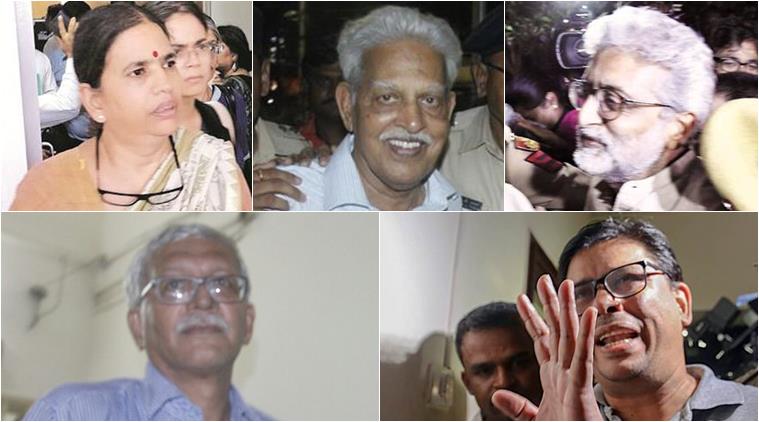Terrorised By Law
Criminalising the mere espousal of an ideology under the UAPA is unconstitutional.

The abuse of the UAPA, if unchecked by the judiciary, poses a greater threat to the sovereignty and integrity of India, than the people being arrested under this Act because nothing incites hatred like injustice.
The Unlawful Activities Prevention Act 1967, was enacted by Parliament in 1967, as sections 123 and 124 of the Indian Penal Code were thought to be inadequate to control organised crime and acts of terrorism. Oddly enough, these provisions were considered adequate by the British colonial government to quell anti-state forces! Today several human rights activists, communist thinkers, poets and Dalit voices are being detained under this Act. Even the reading of a translation by Bertolt Brecht, the famous German playwright, is being called an act of inciting sedition.
To determine whether these voices are voices of sedition, we must start with the Constitution. The Preamble to the Constitution makes a solemn resolve to constitute India into a sovereign socialist secular democratic republic and to secure to all its citizens, justice, social, economic and political and equality of status and opportunity. The Directive Principles of State Policy enshrined in the Constitution provide that the State shall in particular, direct its policy towards securing — (a) that the citizens, men and women equally, have the right to adequate means of livelihood; (b) that ownership and control of the material resources of the community are so distributed as best to subserve the common good; (c) that the operation of the economic system does not result in the concentration of wealth and means of production to the common detriment. The Constitution of a democratic and decolonised country could not have read any differently because the basis of true freedom is socialism.
Therefore, criminalising the mere espousing of socialist or communist ideology under the UAPA is patently unconstitutional as the objective is neither illegal nor unconstitutional. However, Article 19 of the Constitution sets limits to our freedom of speech and expression, even for legitimate and legal objectives. To test the scope within which a citizen is legally permitted to voice their protest against a government or organise opposition to it even for a constitutional purpose, we must consider the scope and ambit set by the Supreme Court to Article 19 in the context of sections 123 and 124 of the IPC, in the matter of Kedar Nath vs. State of Bihar (1962).
The Supreme Court clarified that the freedom of speech has three components: Discussion, advocacy and incitement. It is only when discussion and advocacy reach the level of incitement not just in words but deeds to provoke people to violate the law, that it falls in the realm of the mischief sought to be quelled by Section 124 A of the Indian Penal Code, according to the Court.
The conviction of people for merely questioning the injustice of a government or possessing or reading socialist or communist literature, even if it is associated with banned groups (that believe in the unlawful method of armed struggle) on the basis of assumptions, without evidence, that those reading such literature must be inciting violence, is in fact an extra-legal act of violence by the state upon the citizen.
The National Crime Bureau Statistics indicate that 67 per cent of the cases under the UAPA 1967 end up in acquittal or discharge of the persons accused, after their having lived in detention, often for years, as the draconian provisions of the Act, deprive the accused of the right to bail, allow police remand for over 30 days as opposed to the 14 days under the IPC and give leave to the prosecution to file a chargesheet in 180 days rather than the usual mandate of 90 days.
If a democratic state is permitted to arm itself with legislations such as the UAPA, empowering it to deny someone who opposes the government their freedom for an almost indefinite period of time, it casts a duty upon the judiciary to ensure that the arrest itself is based on cogent and irrefutable evidence. It requires the magistracy to be alert and willing to jealously guard the citizen from unlawful arrest. Because the abuse of the UAPA, if unchecked by the judiciary, poses a greater threat to the sovereignty and integrity of India, than the people being arrested under this Act because nothing incites hatred like injustice.
The writer is a lawyer practising at the Delhi High Court.
For all the latest Opinion News, download Indian Express App
More From Nandita Rao
- Call Hate Crime By Its NameThat’s the first step towards dealing with the horror of Kathua ..
- Consent At The CoreMahmood Farooqui verdict lays down a new paradigm for determining sexual assault...








































No hay comentarios:
Publicar un comentario